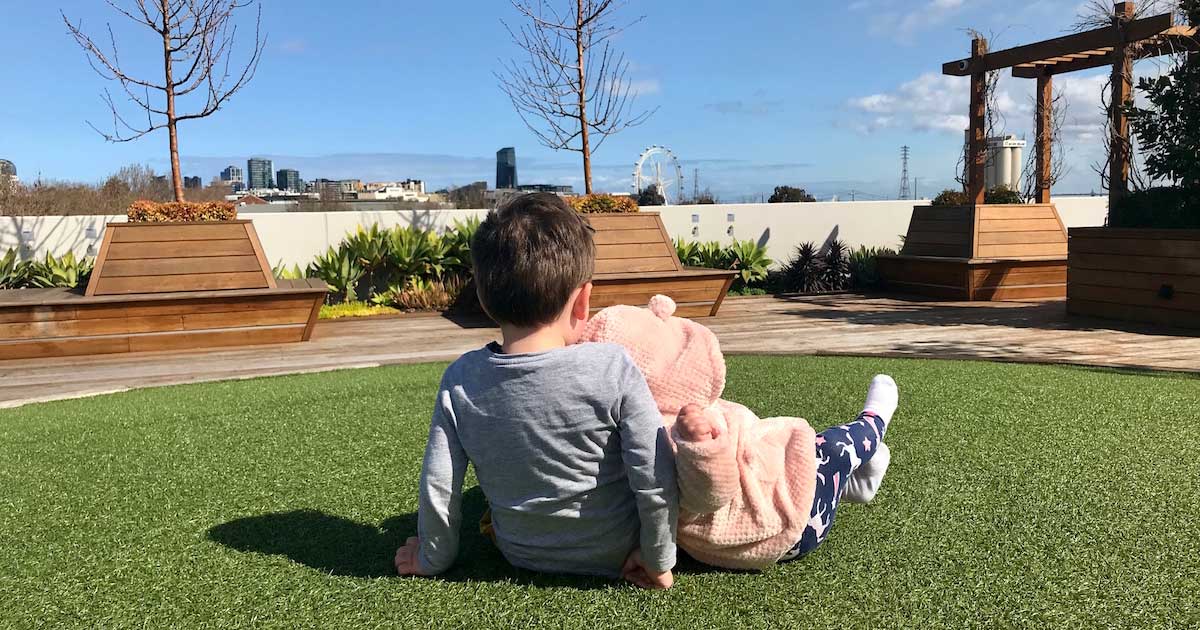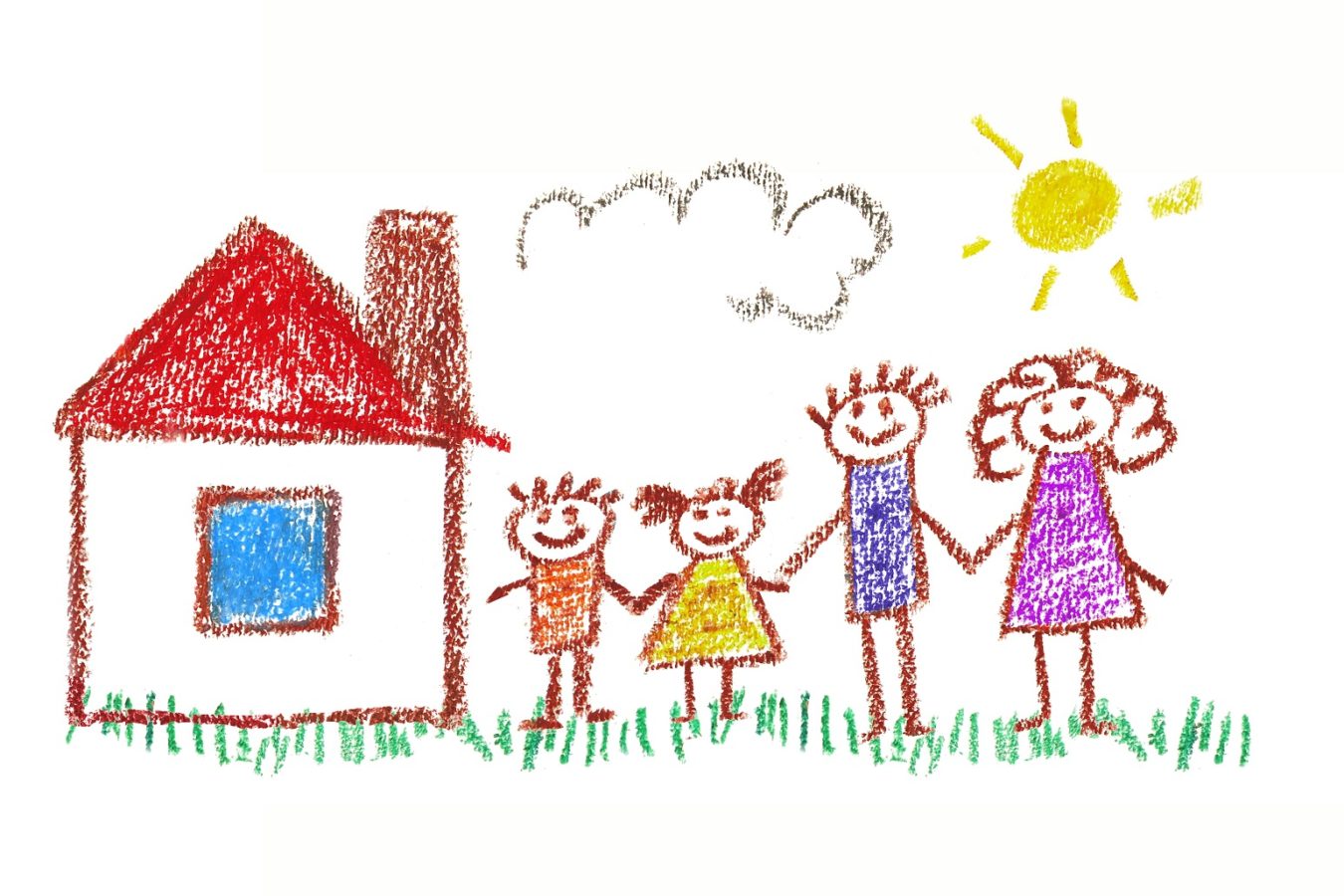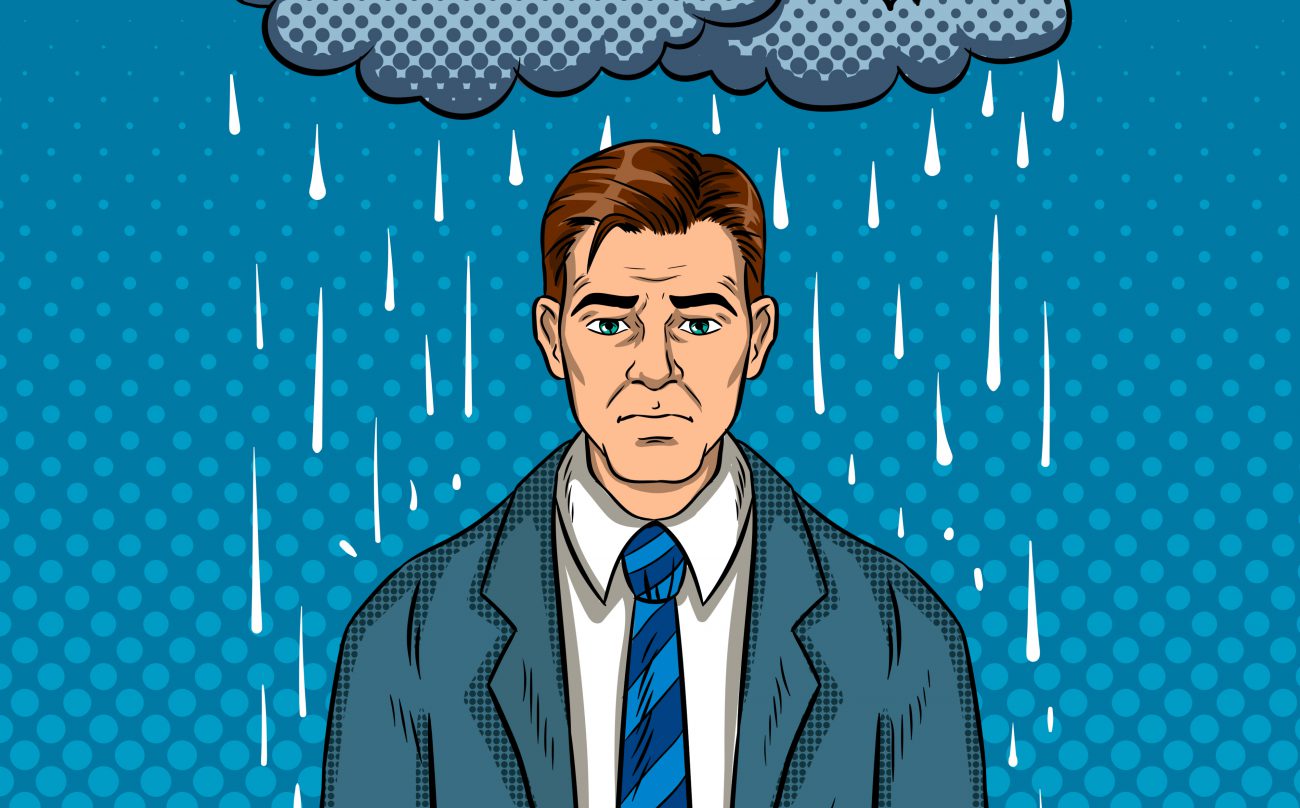
Natalie Moutafis shares the sorrow of her pregnancy loss and encourages us to talk more about miscarriage and infertility struggles.
This post deals with miscarriage and pregnancy loss and may be triggering for some readers.
Not too long ago, and quite unexpectedly, I found out I was pregnant… a beautiful, happy surprise. There was plenty going on in life, as there often is, but early ultrasounds and blood tests confirmed all was progressing well. Life went on as we began to think about the next addition to the Tiny Human household.
Weeks passed and our follow up ultrasound appointment arrived. As the obstetrician moved the wand over my slightly bloated belly I anxiously watched the monitor looking for the heartbeat. We could see the baby but there was no flickering blip on the screen. Optimistically, the obstetrician suggested we try another angle, but I already knew. He checked again and confirmed, that this little baby’s heart had unfortunately stopped.
As someone with two tiny humans already, it’s easy to think, I’m lucky, at least I have two healthy happy beautiful children. But it’s not easy. My baby died. And it’s not the first time I’ve dealt with pregnancy loss, in fact about one in four pregnancies end in miscarriage. A loss is a loss.
We’re the couple that seems to have done it all, infertility struggles, IUI, endometriosis diagnosis, IVF, chemical pregnancies, more IVF, ectopic pregnancies, and miscarriages. Our rainbow babies, babies born after loss, of course, have made all the struggles worthwhile. But it’s not like that for everyone, especially those who are beginning their journey or have recurrent miscarriages without ever holding a baby in their arms, or those that lose a baby due to genetic reasons, and those that have babies born sleeping – stillborn.
A miscarriage is a natural and common event. All told, probably more women have lost a child from this world than haven’t. Most don’t mention it and they go on from day to day as if it hadn’t happened, so people imagine a woman in this situation never really knew or loved what she had. But ask her sometime, how old would your child be now? And she’ll know.
- Barbara Kingsolver, Animal Dreams
It’s hard to talk about no matter what your struggle might be. For me, I don’t look any different if you were to walk past me in the street. Emotionally it’s another story.
I’m grieving the shock loss of what could have been, this baby that might’ve completed our little family, the baby that was with us for a few months, only to now suddenly not be.
I’m bitter because I had to go to the hospital for surgery by myself (thanks to covid restrictions), dropped at the entrance with no one to hold my hand as I waited anxiously to be admitted (although I’m so grateful to the kindness of all the nurses and doctors who treated me so empathetically).
There’s sorrow for my husband– helping me as best he can, while also needing to process his loss too.
There’s thankfulness for a deeply understanding employer. One that knows of our journey over the years and can still support me unwaveringly – something that not all organisations manage to handle with such grace.
I’m feeling lucky that I get to snuggle my Tiny Humans and hold them close, with them squeezing me tight as though they know something has happened and I need their cuddles and kisses now more than ever.
I’m grateful that family and friends, near and far, are checking in with us and offering support: something that not many couples experience because miscarriage is still not openly discussed.
It’s too soon to know if we’ll get another chance – or if we even want to – only time will tell, but time isn’t exactly on our side anyway.
By sharing my story, I hope that other women and couples will begin to talk about miscarriage and infertility struggles, helping remove the (unwarranted) taboo, create a deeper understanding, and allow conversations to happen.
Powerful documentaries such as the Misunderstandings of Miscarriage are also helping people understand what it’s like to go through a miscarriage. Understanding what your partner, sister, friend, or colleague is going through will make it much easier for her to open up to you and share her story.
Celebrities like Meghan Markle, Rebel Wilson and Michelle Obama are beginning to openly share their miscarriage and infertility stories more and more, and recently the Federal Government introduced a new law allowing parents to take bereavement leave if they miscarry a baby prior to 20 weeks. We’re still a long way off, but these are welcome changes that make it a bit easier to share.
So please, talk about it, ask for support, and when someone asks you ‘are you OK?’ be honest.
Support available
For more support and information on pregnancy loss and infertility contact:
The Pink Elephants Support Network
Sands
Bears of Hope: Pregnancy and Infant Loss Support
Uber Barrens Club
Beyond Blue
Lifeline
Like this post? Please share using the buttons located on this page.
About Natalie Moutafis
Natalie Moutafis is the author of our Tiny Humans blog, providing her engaging and insightful take on life with two young children. Natalie is also a project manager at ISV.
Subscribe to The Parents Website

